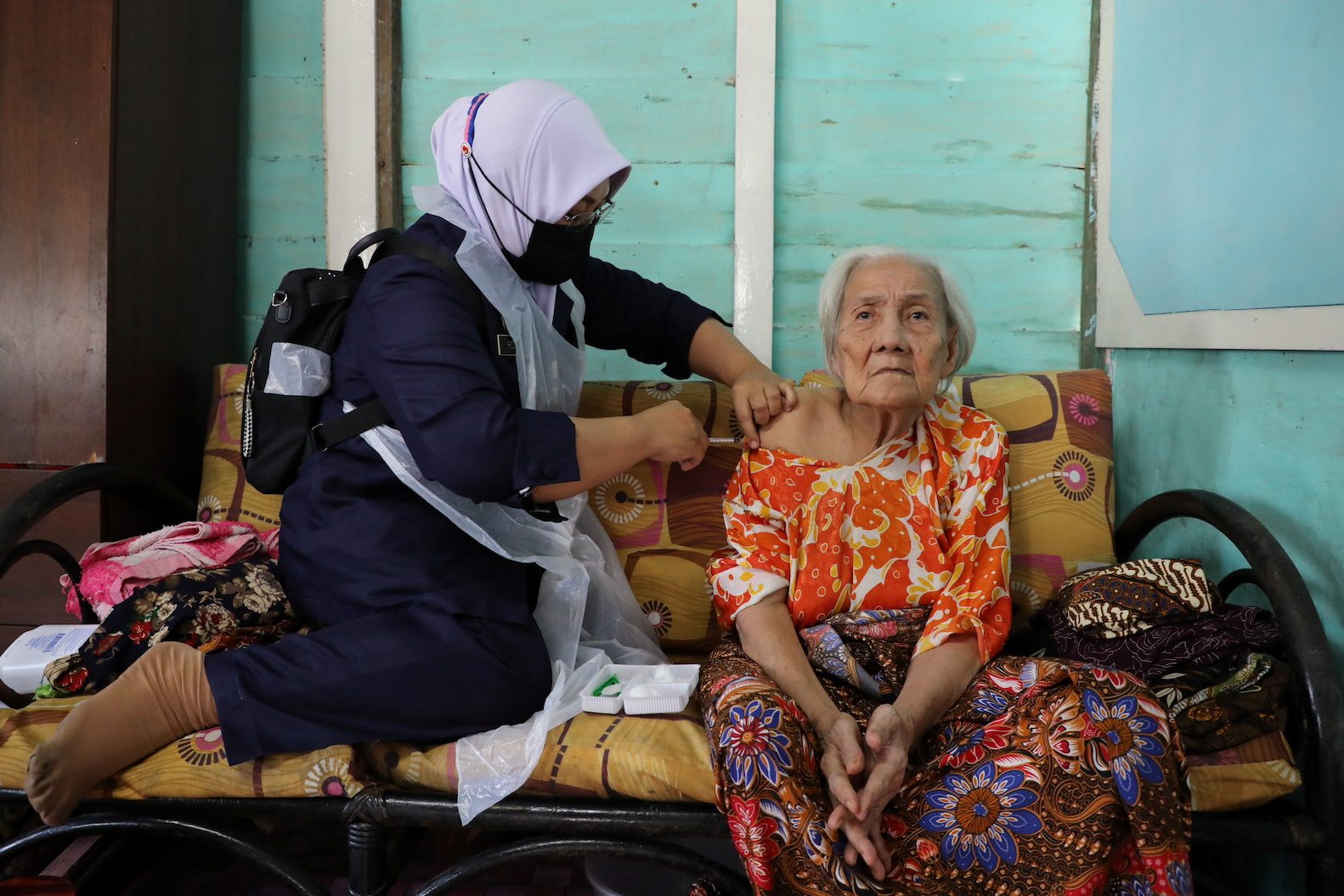SUMMARY
This is AI generated summarization, which may have errors. For context, always refer to the full article.

Sinovac’s COVID-19 vaccine is highly effective against serious illness, although rival shots from Pfizer/BioNTech and AstraZeneca showed better protection rates, a large real world study from Malaysia showed.
The latest data is a boost to the Chinese firm, whose COVID-19 vaccine has been under growing scrutiny over its effectiveness following reports of infections among healthcare workers fully immunized with the Sinovac shot in Indonesia and Thailand.
The study, conducted by the Malaysian government, found that 0.011% of about 7.2 million recipients of the Sinovac shot required treatment in intensive care units (ICU) for COVID-19 infections, health officials told reporters on Thursday, September 23.
By contrast, 0.002% of about 6.5 million recipients of the Pfizer/BioNTech vaccine needed ICU treatment for COVID-19 infections, while 0.001% of 744,958 recipients of the AstraZeneca shot required similar treatment.
Kalaiarasu Peariasamy, a director at the Institute for Clinical Research that conducted the study along with a national COVID-19 taskforce, said vaccinations – regardless of the brand – have reduced the risk of admission to intensive care by 83% and lowered the risk of death by 88% based on a smaller study involving about 1.26 million people.
“The breakthrough rate for intensive care unit admission is extremely low,” he said, adding overall ICU admissions among fully vaccinated individuals stood at 0.0066%.
The Mortality rate of fully vaccinated people was also low at 0.01% and the majority of them were either above 60 years of age or with comorbidities.
There were differences in the demographics of the recipients of the three vaccines and it could have resulted in the different results, Kalaiarasu said.
Many of AstraZeneca recipients were in the “mid-adulthood age”, while the Pfizer and Sinovac shots were “very much for the vulnerable population,” he said.
AstraZeneca recipients also accounted for a much smaller proportion of the study, which involved about 14.5 million fully vaccinated individuals and conducted for more than five months since April 1.
In July, Malaysia said it will stop administering the Sinovac vaccine once its supplies end, as it has a sufficient number of other vaccines for its program.
The Sinovac vaccine has been widely used in several countries including China, Indonesia, Thailand and Brazil, and the company said earlier this month it had supplied 1.8 billion doses at home and abroad.
Malaysia has fully vaccinated 58.7% of its 32 million population and gave at least one dose to 68.8%. – Rappler.com
Add a comment
How does this make you feel?


![[Time Trowel] Evolution and the sneakiness of COVID](https://www.rappler.com/tachyon/2024/02/tl-evolution-covid.jpg?resize=257%2C257&crop=455px%2C0px%2C1080px%2C1080px)


There are no comments yet. Add your comment to start the conversation.